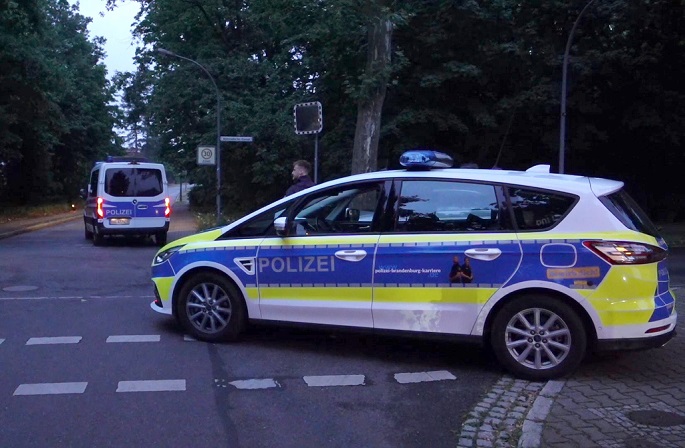German terrorist assessment high but unchanged after Russian attack
Published : 26 Mar 2024, 02:55
The assessment of the threat from Islamist terrorism to Germany remains high but is unchanged since the attack on a concert venue near Moscow, dpa learned from state security authorities on Monday.
Interior Minister Nancy Faeser told the German daily Süddeutsche Zeitung that the authorities were working on the assumption that Islamic State – Khorosan Province, an Islamic State offshoot, was behind the attack.
German security forces see the group, which is active mainly in Afghanistan, as a major threat to the country and to Europe as a whole. Khorosan refers to a historical Central Asian region taking in parts of Afghanistan, Uzbekistan, Turkmenistan, Tajikistan and Iran.
Terrorism expert Peter Neumann told German national public radio on Monday that Germany and western Europe were facing an increased threat of Islamist terrorism since the Gaza War erupted.
He spoke of a huge "mobilization by Islamists, by jihadists all over western Europe" in remarks to broadcaster Deutschlandfunk. Three or four attacks had been prevented in Germany alone, he said.
Neumann described Islamic State – Khorosan Province as "extremely ambitious and aggressive in attempting attacks in non-Muslim countries, including countries in western Europe." The largest current terrorist threat in Germany and in Europe as a whole once again came from the Islamist, or jihadist, side, he said.
The authorities face a dilemma between drawing attention to the threat, while not alarming the population unnecessarily. "I believe the German government is currently doing this quite well," he said. The security forces should be congratulated for preventing many terrorist attacks, he added.
Neumann pointed to two arrests of suspected Islamic State supporters in the central German state of Thuringia last week and arrests linked to a planned attack on Cologne Cathedral over Christmas.
Incidents were on the rise, Neumann said. Since the start of the Gaza War, there had been eight attempted jihadist terrorist attacks in Europe, against just six such attempts over the whole of 2022, he said, citing figures from Europol, the EU's law enforcement agency.
And he noted that, whereas in the past, the terrorists had acted individually, Islamic State – Khorosan Province worked in a more organized way. He termed the group "truly professional" in being able to organize its networks.
Earlier on Monday, Interior Minister Faeser warned of the growing dangers posed by Russia's hybrid warfare of traditional and cyber spying and accused the Kremlin of encouraging migrants to move to Western Europe.
The Social Democratic (SPD) politician, in a story in Monday's Süddeutsche Zeitung newspaper, said: "We are actually experiencing a new dimension of threats from Russian aggression.
"But espionage is also at least as active," said Faeser. She also accused the Kremlin of deliberately promoting refugee movements to Western Europe: "Russia also wants to destabilize the West with migration."
With an eye toward the European Parliament elections in June and German state elections in September, Faeser said the German government will gear up more strongly to defend itself against cyber espionage
"We must ensure that there are no hacker attacks on electoral authorities or on the transmission of election results".
Faeser is focusing on the increased use of artificial intelligence to protect against disinformation campaigns and spoke out against cuts to her budget for 2025.
The interior minister also accused the far-right Alternative for Germany (AfD) party of being close to Putin, which AfD leader Alice Weidel denied in a dpa interview.
"The AfD worships Putin and despises modern Germany," Faeser said. The party had "radicalized itself in large parts from an anti-euro party to an anti-constitutional party."
Faeser did not rule out the possibility of banning the AfD,a move which has been debated recently in Germany.
"If a party wants to aggressively undermine the basic democratic order, it can be banned by the Federal Constitutional Court. If the radicalization of the AfD continues, this is an option provided for in our constitution," Faeser said.


